Problem-Solving Skills Reading Fiction Worksheets for Ages 6-7
5 filtered results
-
From - To
Unlock your child's potential with our Problem-Solving Skills Reading Fiction Worksheets for ages 6-7, available at Kids Academy. Designed to engage young minds, these worksheets combine the joy of reading fictional stories with critical thinking exercises. As children delve into captivating tales, they are prompted to address various challenges and puzzles, enhancing their problem-solving abilities. Each activity not only boosts reading comprehension but also encourages logical reasoning and creativity. With our expertly curated worksheets, learning becomes an adventure that fosters essential skills for future academic success. Cultivate a love for reading while sharpening young problem solvers with Kids Academy’s resources.
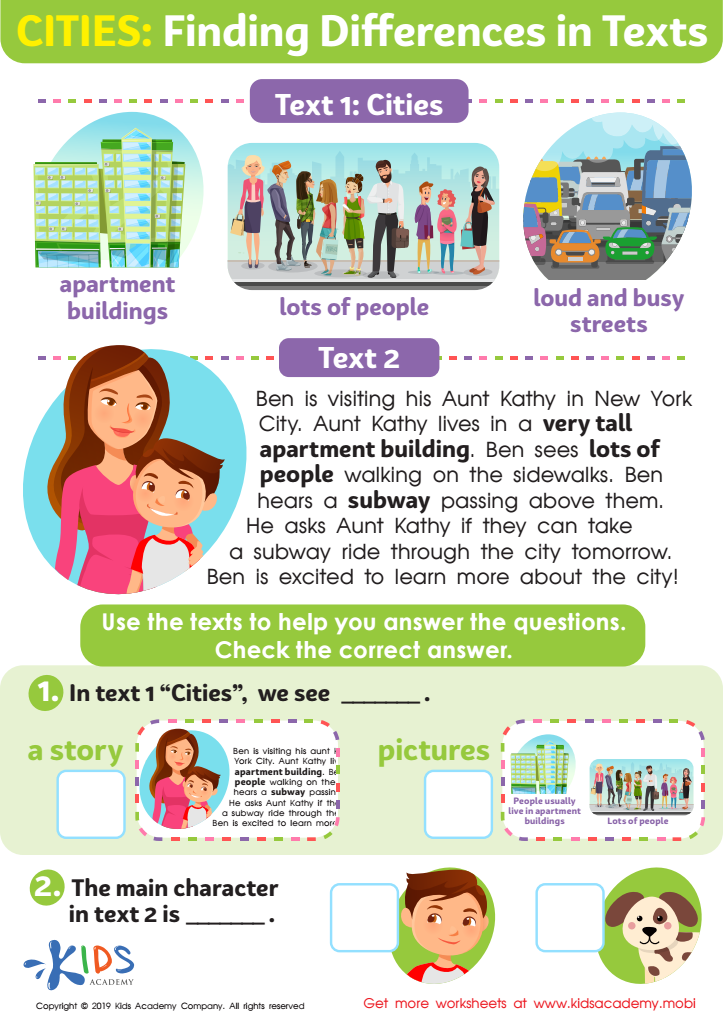

Cities: Finding Differences Worksheet
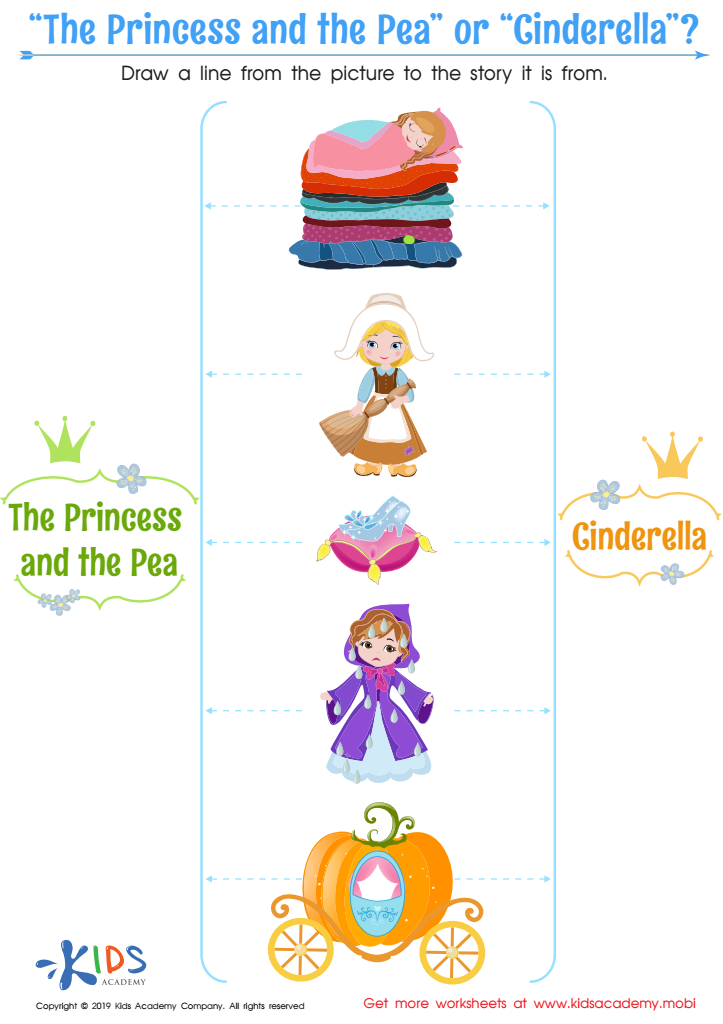

“The Princess and the Pea” or “Cinderella” Worksheet
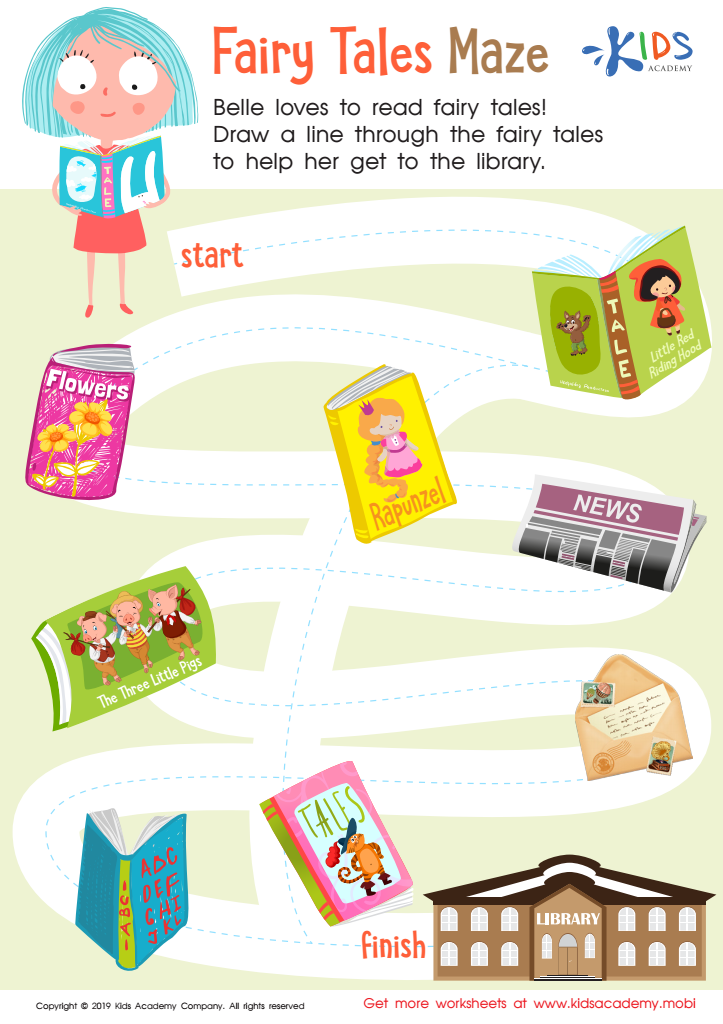

Fairy Tales Maze Worksheet
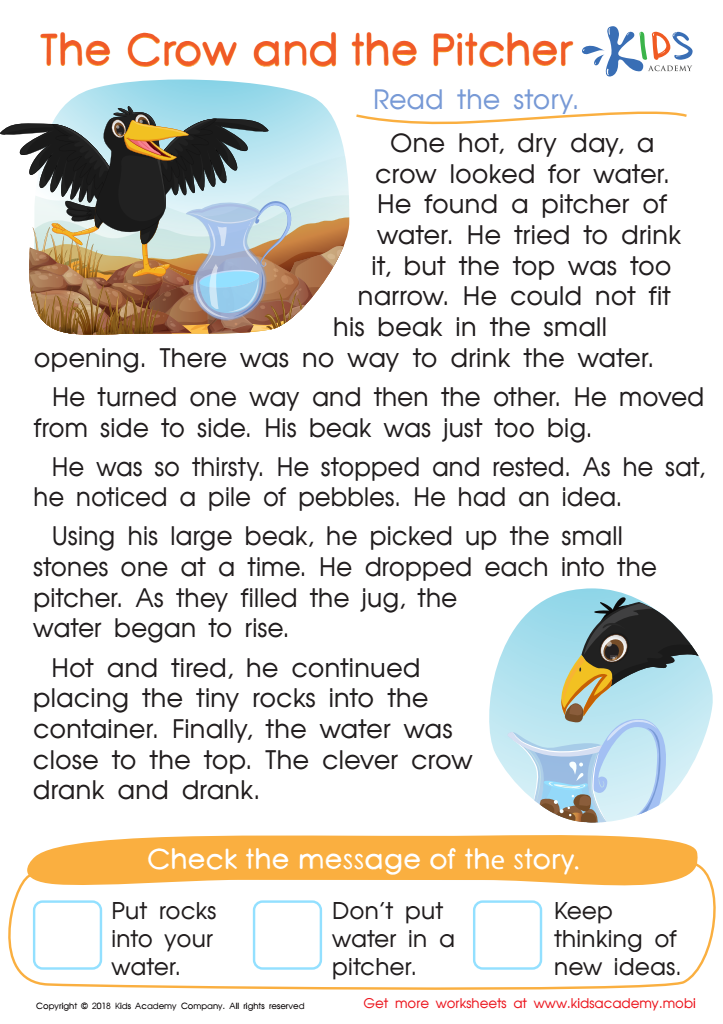

The Crow and the Pitcher Worksheet
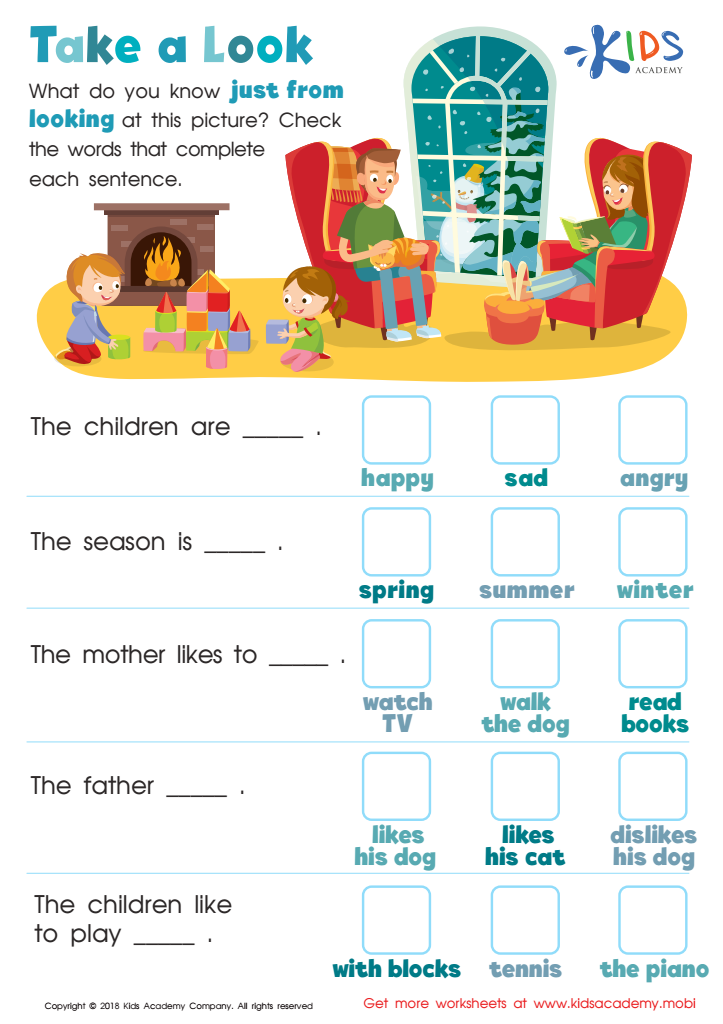

Take a Look - Part 1 Worksheet
Developing problem-solving skills through reading fiction is crucial for children aged 6-7, as it fosters cognitive and emotional growth. At this formative stage, children are rapidly developing critical thinking abilities. Fictional stories present various challenges and scenarios, encouraging young readers to think creatively and develop solutions. This mental exercise enhances their ability to analyze situations, foresee consequences, and make decisions.
Moreover, reading about characters in stories navigating problems allows children to empathize and understand different perspectives. This emotional engagement enhances their social skills, such as empathy, cooperation, and conflict resolution, which are vital for building healthy relationships.
Parents and teachers play a pivotal role in guiding these young minds. By encouraging problem-solving through fiction, they help children build a foundation of resilience and resourcefulness. For instance, discussing dilemmas faced by characters and brainstorming solutions together stimulates joint learning, bonding, and equips children with the skills needed to face their own real-life challenges.
Additionally, fostering a love for reading at an early age has lasting benefits on academic performance. Children who enjoy reading are often more proficient in language skills, vocabulary, and comprehension. Therefore, integrating problem-solving through fiction is not only about honing specific skills but also about instilling a lifelong love for learning and critical thinking.
 Assign to My Students
Assign to My Students






.jpg)


.jpg)











